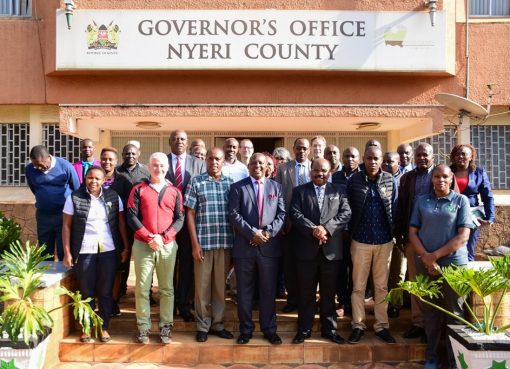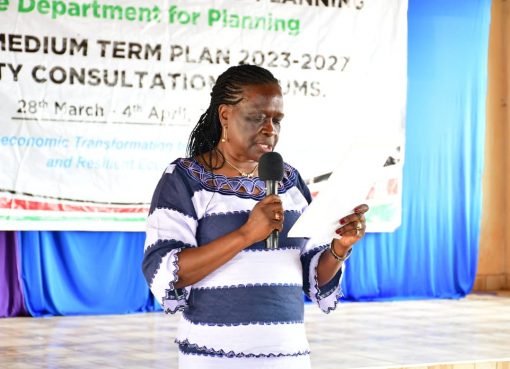Stakeholders in the Savings and Credit Cooperative Organization (Sacco) have warned that the rising cost of living in the country was negatively impacting on the savings of members.
Chief Executive Officer (CEO) of the Sacco Societies Regulatory Authority (SASRA) Peter Njoroge expressed fears that members were no longer able to embrace a saving culture because of the escalating cost of basic commodities.
He said although the Sacco industry has demonstrated some resilience despite the effects of the Covid-19 pandemic, the rise in food prices had further aggravated the economic stability of Kenyans.
“Although the recovery in terms of numbers and savings has been coming up since last year in 2021, new emerging challenges might just affect the gains made” he said.
Njoroge noted that with the geopolitical issues such as the war in Ukraine that had a global impact, the shortage of food that has seen over 3 million people facing starvation in the country posed a challenge to Saccos as disposable incomes of cooperators were affected.
“Some of these food basket challenges such as consumer goods going up contribute to inflation and potentially affect disposable income and what this means is people and industries will hold back their income to survive,” he said.
Addressing leaders during a meeting to review and discuss the implementation of regulations for the National cooperative bill 2021, Njuguna called upon Sacco managers to be wary of the looming crisis by using data and regulations guidance to wade through the challenges caused by rising inflation rates.
He said the ability to sustain and feed the households has been affected with the developments that are coming just when the country was recovering from Covid-19 pandemic and this should be a matter of concern.
“Sacco’s savings are essentially mobilized from the household which is the basic unit of economic development. The inflation and with all factors affecting macroeconomic environment being eventually manifested in the incomes, the households and businesses that have to be supported by employment and household on day to day lives are at risk,” he said.
Njuguna noted that some of the regulatory reports such as monitoring default and remittance at this particular moment become critical thus leadership and management of Sacco’s need to pay accurate attention to the data to see how it’s going to assist in cushioning the situation especially on matters remittance.
Njuguna however assured that the trends that have been in the last two to three years can be sustained and currently the sooner the Ukraine / Russia crisis is solved the better for the country so that it can only be left to deal with the issue of rainfall and food being brought about by climate change.
“A lot is however happening in the movement such as a credit guarantee scheme targeting SMES which is a de-risking element and what tools that can be used to mitigate the risk thus,” Njuguna said.
The CEO said the Cooperative has expanded aggressively lending to SMEs and agriculture and therefore these are sectors that are affected and vulnerable to any disruptions of the economy like inflation adding that considering the small medium entrepreneurs largely relies on imports, there is more reason to be alert considering the new developments might change the entire environment.
What is comforting, though the CEO said, is that 75 percent of the industry assets of 700 billion are actually from employer based public sector Sacco’s and this demonstrates the continued growth and resilience Kenyans Sacco’s have been.
Njuguna emphasized on the need for the Sacco executives and directors to be alert and listen to the environment and how to mitigate it.
He assured that key strategies are being pursued at various levels, for example, in SME strategies such as a credit guarantee scheme which is a de-risking element that is being fast tracked.
Cooperative Alliance of Kenya (CAK) Chief Executive Officer Daniel Marube said that although Covid-19 battered the economy, cooperative movement was not spared either and has been in recovery.
However, he noted that the effects of the Ukraine and Russia crisis and new changes in escalation of food prices is definitely affecting households and strain the consumer purchasing power.
“Our members are not able to foot transport, rent bills among other needs and this will definitely disrupt the remittances to the Sacco,” he said.
He explained for example that huge borrowing by parents will be done to finance school fees next month as new academic years begin and this although as a cycle is normal will put more pressure to the Saccos as they struggle to remain afloat in business.
Hazina Sacco National Chairman Evans Kibagendi said the economy has not been very good and as a financial institution in the country, cooperative leaders are discussing the economic issues affecting Saccos in terms of constraints of uptake of loans.
“Our members have been affected by constraints in taking loans because of job losses and cuts which has brought down some of the Saccos we are however looking at policies and products so that we are able to go back to the business as it has been,” he said.
Kibagendi said that a lot of changes have come up in terms of law and the regulations in the movement and this will be able to strengthen the movement and be able to support members to higher heights.
Kenya Police Sacco National Chairman David Mategwa observed that the credit unions might suffer reduced remittances as members will be more interested in financing basic needs.
“If a member has been contributing Sh2, 000, and with the situation continues deteriorating the depositor will be forced to reduce the contribution by half to Sh1, 000. During the intensive spread period of Covid-19, we witnessed some Saccos plunging into crisis, and this has been happening to financial cooperatives which are suffering from low capitalization,” said Mategwa.
By Wangari Ndirangu





